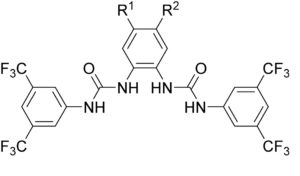Outstanding Reviewers for Organic & Biomolecular Chemistry in 2017
We would like to highlight the Outstanding Reviewers for Organic & Biomolecular Chemistry in 2017, as selected by the editorial team, for their significant contribution to the journal. The reviewers have been chosen based on the number, timeliness and quality of the reports completed over the last 12 months.
We would like to say a big thank you to those individuals listed here as well as to all of the reviewers that have supported the journal. Each Outstanding Reviewer will receive a certificate to give recognition for their significant contribution.
Professor Kyo Han Ahn, Pohang University of Science and Technology, South Korea, ORCID: 0000-0001-7192-7215
Dr Yumin Dai, Virginia Tech, USA
Dr Stephen Hashmi, Universität Heidelberg, Germany, ORCID: 0000-0002-6720-8602
Dr Shih-Yuan Liu, Boston College, Merkert Chemistry Centre, USA, ORCID: 0000-0003-3148-9147
Dr Luis Simón, University of Salamanca, Spain, ORCID: 0000-0002-3781-0803
Professor Colin Suckling, University of Strathclyde, UK
Dr Mark Taylor, University of Toronto, Canada, ORCID: 0000-0003-3424-4380
Dr Mario Waser, Johannes Kepler Universität Linz, Austria, ORCID: 0000-0002-8421-8642
Professor Shuli You, Shanghai Institute of Organic Chemistry, China, ORCID: 0000-0003-4586-8359
Dr Jian Zhou, East China Normal University, China
We would also like to thank the Organic & Biomolecular Chemistry board and the wider community for their continued support of the journal, as authors, reviewers and readers.
If you would like to become a reviewer for our journal you can find more details in our author and reviewer resource centre.













